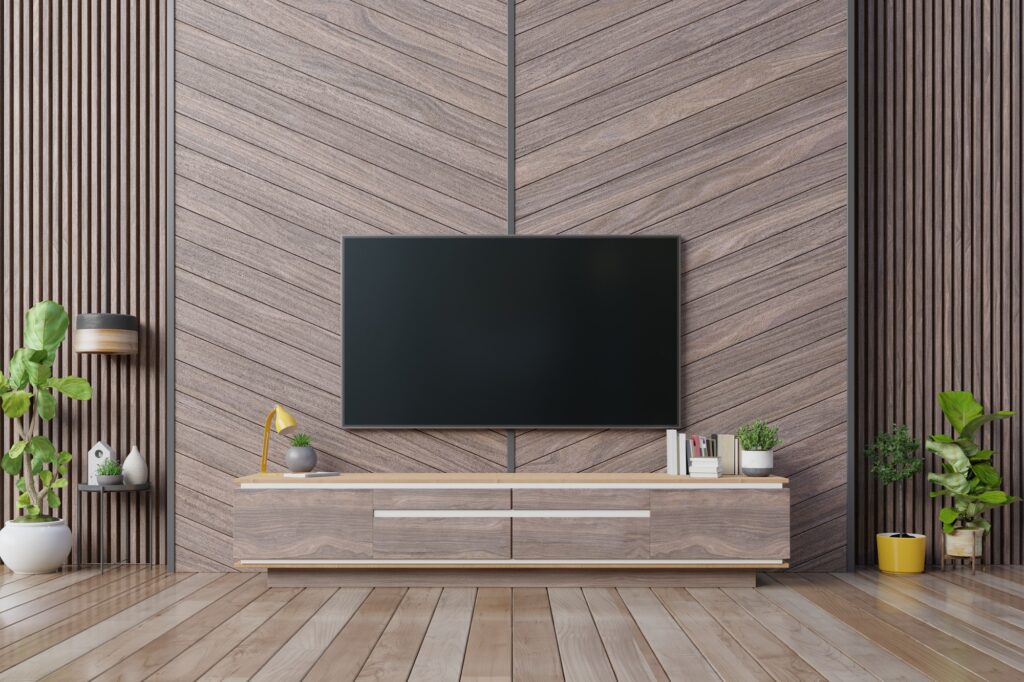As our lives become increasingly dynamic, the way we inhabit and interact with our living spaces is evolving. The constraints of modern urban living, with its emphasis on compact residences, have given rise to a demand for innovative solutions. Adaptable Smart Furniture emerges as a game-changer, addressing the need for functionality without compromising style. In this comprehensive guide, we delve into the world of Adaptable Smart Furniture, exploring how these innovative pieces redefine the way we utilize and experience our living spaces. From multi-functional designs to cutting-edge technology integration, join us on a journey through the ingenuity of furniture that adapts to our dynamic lifestyles, proving that style and practicality can coexist even in the most compact of dwellings.
Understanding the Evolution of Furniture Design

- Traditional vs. Smart Furniture
Evaluating furniture design involves a nuanced consideration of both traditional and smart furniture, each with its distinct set of criteria. Traditional furniture is often assessed based on craftsmanship, material quality, and aesthetic appeal, emphasizing timeless design principles. Evaluators look at the longevity of traditional pieces, considering how well they withstand trends and maintain their relevance over time. On the other hand, smart furniture introduces a new dimension to evaluation, incorporating technological aspects such as functionality, connectivity, and adaptability. The assessment of smart furniture involves scrutinizing the seamless integration of technology into the design and evaluating its impact on user experience and practicality in modern living. Balancing the enduring qualities of traditional design with the innovative features of smart furniture becomes key in a comprehensive evaluation, as it addresses both the timeless and cutting-edge aspects that contribute to the overall success of furniture in enhancing our living spaces.
Features of Adaptable Smart Furniture
1. Versatility
Adaptable smart furniture seamlessly transitions between different functions, offering a dynamic range of possibilities for various living scenarios.
2. Space Optimization
Designed for compact living spaces, these pieces often include foldable, stackable, or modular elements to maximize the efficient use of limited space.
3. Technology Integration
Many pieces come equipped with advanced technologies, such as USB ports, wireless charging stations, or IoT connectivity, enhancing convenience and catering to modern tech-driven lifestyles.
4. Multi-Functionality
Adaptable smart furniture serves multiple purposes, such as sofa beds, transforming tables, or modular shelving units, providing flexibility to meet diverse needs.
5. Sustainable Design
In response to environmental concerns, these pieces often utilize eco-friendly materials and manufacturing processes, aligning with the growing trend of sustainable living.
6. Aesthetic Appeal
Contrary to the notion of purely utilitarian design, adaptable smart furniture prioritizes aesthetics, offering sleek, modern designs with customizable options to complement diverse interior styles.
7. User-Friendly
Ergonomics play a crucial role, ensuring a seamless and comfortable user experience when transitioning between different functions, contributing to overall satisfaction.
Benefits of Adaptable Smart Furniture
1. Optimized Living Space
Adaptable smart furniture allows residents to make the most of limited space, creating a more open and functional environment.
2. Tech-Enabled Convenience
The integration of technology enhances daily living, providing features like charging stations and connectivity that align with modern technological needs.
3. Eco-Friendly Options
Sustainable materials and manufacturing practices contribute to responsible consumption and environmental consciousness.
4. Cost-Effective Solutions
Despite initial investment, the long-term benefits of optimizing space and versatility often outweigh the costs, making it a practical choice for budget-conscious consumers.
5. Dynamic Design
The adaptability and multi-functionality of these pieces cater to the dynamic nature of contemporary living, accommodating changing needs and preferences.
6. Positive Aesthetics
Adaptable smart furniture not only serves a purpose but also contributes to the visual appeal of the living space, enhancing the overall aesthetics of the interior.
Types of Adaptable Smart Furniture
Types of adaptable smart furniture showcase the diverse range of options available to cater to the varying needs and preferences of individuals living in compact or multifunctional spaces.
1. Convertible Sofas
– Transforming from seating to sleeping space, these sofas are versatile and ideal for compact living areas.
2. Murphy Beds (Foldable Wall Beds)
– Efficiently use vertical space by folding into a wall or cabinet, providing a hidden sleeping solution that frees up floor space during the day.
3. Expandable Dining Tables
– Catering to varying numbers of diners, these tables can be extended or collapsed, adapting to different occasions and optimizing dining spaces.
4. Modular Shelving Units
– Customizable and reconfigurable, modular shelving units offer adaptability to changing storage needs and interior layouts.
5. Smart Desks
– Incorporating adjustable heights, built-in charging stations, and cable management, smart desks cater to the modern workspace with a focus on technology and ergonomics.
6. Nesting Tables
– A set of smaller tables that can be stacked or nested together, providing flexibility in usage and easily stored when not needed.
7. Folding Chairs and Tables
– Ideal for occasional use, these furniture pieces can be folded and stored compactly, saving space when not in use.
8. Transforming Coffee Tables
– Serving as a conventional coffee table but with hidden compartments or extensions, these tables adapt to various needs, such as storage or additional surface area.
9. Convertible Storage Ottomans
– Combining seating with hidden storage, these ottomans offer a dual-purpose solution, functioning as both a seat and a discreet storage unit.
10. Adjustable Bookshelves
– Shelves that can be adjusted in height or width, accommodating different-sized items and allowing for creative display configurations.
11. Modular Sofas
– Comprised of interchangeable sections, modular sofas offer flexibility in arrangement, allowing users to customize seating layouts based on preference and space constraints.
12. Smart Wardrobes
– Incorporating features like automated lighting, built-in charging, and adjustable shelving, smart wardrobes provide a tech-enhanced storage solution for clothing and accessories.
Also Read: Smart Home Lighting Ideas to Enhance Ambiance and Mood
How Adaptable Smart Furniture Enhances Living Spaces
1. Cost-Efficient Space Optimization
– Affordable smart furniture often focuses on optimizing space efficiently, allowing users to make the most out of their living areas without breaking the bank.
2. Multi-Functionality on a Budget
– Budget-friendly smart furniture brings multi-functionality to the forefront, offering pieces that serve dual or multiple purposes without a hefty price tag.
3. Tech Integration Without the Premium
– Despite being affordable, many smart furniture options incorporate essential technologies like USB ports or built-in charging stations, enhancing convenience without the premium cost.
4. Adaptability on a Dime
– Affordable smart furniture brings adaptability within reach, allowing individuals to invest in pieces that can evolve with changing needs and preferences without straining their budget.
5. Stylish Solutions Without the Splurge
– Inexpensive smart furniture doesn’t compromise on style. These pieces often boast sleek, modern designs that contribute to the overall aesthetics of a living space.
6. Practical Sustainability
– Budget-friendly smart furniture options often consider sustainability, incorporating eco-friendly materials and manufacturing processes to align with the growing trend of environmentally conscious living.
7. Positive Impact on Everyday Living
– Affordable smart furniture positively impacts daily life by providing practical solutions that make living in compact spaces more comfortable and enjoyable without requiring a significant financial investment.
8. Long-Term Value
– While affordable, smart furniture is often designed with durability in mind, ensuring long-term value for users who seek practical, cost-effective solutions for their living spaces.
Factors to Consider When Choosing Adaptable Smart Furniture
1. Space Requirements
– Assess the dimensions of your living space and identify areas where adaptable smart furniture can optimize the available room, ensuring a harmonious fit within the layout.
2. Functionality and Purpose
– Define the primary functions you require from the furniture. Whether it’s optimizing sleeping space, providing extra storage, or creating flexible work areas, choose pieces that align with your specific needs.
3. Budget Constraints
– Establish a budget range before exploring options. Adaptable smart furniture comes in various price points, and setting a budget helps narrow down choices to those that align with your financial considerations.
4. Technological Integration
– Evaluate the level of technology integration based on your preferences. Some may prefer basic functionality, while others might be interested in features like built-in USB ports, wireless charging, or IoT connectivity.
5. Aesthetic Compatibility
– Consider the overall design and style of the furniture in relation to your existing interior decor. Adaptable smart furniture should not only be functional but also visually cohesive with the aesthetic of your living space.
6. Ease of Transformation
– Assess how easily the furniture transforms between its different functions. Opt for pieces with user-friendly mechanisms to ensure smooth transitions and a hassle-free experience.
7. Quality and Durability
– Examine the construction and materials used in the furniture. Look for sturdy builds and durable materials that ensure the longevity of the pieces, especially if you plan to use them frequently.
8. Customization Options
– Check for customization options, such as color variations or modular components. This allows you to personalize the furniture to better suit your preferences and the specific layout of your living space.
9. Ergonomics and Comfort
– For items like convertible sofas or smart desks, prioritize comfort and ergonomics. Ensure that the furniture is not only functional but also provides a comfortable and supportive experience during use.
10. Reviews and Recommendations
– Research customer reviews and seek recommendations from others who have purchased similar adaptable smart furniture. Real-world experiences can offer valuable insights into the practicality and reliability of the pieces you are considering.
11. Environmental Considerations
– If sustainability is important to you, look for furniture that incorporates eco-friendly materials and adheres to responsible manufacturing practices, contributing to a more environmentally conscious choice.
Considering these factors ensures a thoughtful and informed selection process, resulting in adaptable smart furniture that seamlessly integrates into your living space while meeting your specific needs and preferences.
In conclusion, adaptable smart furniture represents a paradigm shift in interior design, offering unmatched versatility and technological integration. Its ability to transform spaces, enhance functionalities, and cater to personalized needs makes it a cornerstone of modern living. This exploration into the world of versatile furnishings has unraveled a tapestry of innovation, seamlessly blending practicality with aesthetics. The marriage of technology with design, the focus on sustainability, and the affordability of these solutions collectively contribute to a holistic approach to furnishing compact living spaces. As we navigate the challenges of modern urban living, Adaptable Smart Furniture stands as a beacon of ingenuity, proving that innovation can indeed enhance our daily lives, making every square foot count in creating spaces that are not just functional but also a reflection of our dynamic lifestyles.
